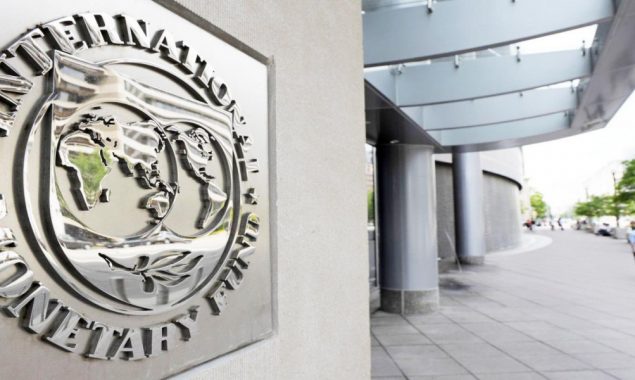SBP digitalises process for export finance scheme
KARACHI: The State Bank of Pakistan (SBP) has digitalised the process for...

KARACHI: The government, amid a heated session of the National Assembly, managed to pass the Supplementary Finance Bill 2021 and the SBP Amendment Bill 2021 in a super long session.
The SBP Amendment Bill, being a legislative bill, would be presented in the Senate after which it will be referred to the Standing Committee on Finance and Revenue, chaired by an opposition member.
The committee has 14 members with the scale tilted towards the opposition, which may make passage of the bill from the house a daunting task; however, the government can call a joint session (as also seen recently) of both houses to pass the bill.
Hence, we do not see any hurdles in the government complying with all prior conditions for the resumption of the International Monetary Fund (IMF) programme. The authorities, as per the news, have requested the IMF Board meeting towards the end of this month; however, a delay could not be ruled out, given limited timeline for turning the SBP Bill into law.
The major amendments to the SBP Act articulated by the bill are complete ban on government borrowing from the central bank (it has been only an understanding under the current IMF programme), while disallowed rolling over of maturing debt of the government, curtailment of refinancing facilities offered by the SBP, and limiting transfer of the SBP profits to the government for fiscal purposes (unlikely to have a material impact on the fiscal balance).
The Supplementary Finance Bill 2021 is passed with certain amendments but demonstrated the authorities’ determination to clamp down imports and promote local manufacturing and strengthen documentation. To highlight, through the Supplementary Act, the government estimates to raise Rs343 billion, of which Rs272 billion could be refunded at a later stage.
The major amendments to the tabled Finance Bill mainly relate to auto sector where the authorities reinstated sales tax on hybrid cars to its original position of 8.5 per cent and 12.75 per cent for below 1800cc and over 1800cc cars, respectively.
The government has also extended the federal excise duty rate of 2.5 per cent for the locally-manufactured passenger cars of 1000cc to1301ccagainst 5 per cent envisaged previously.
Among other amendments, the government has exempted sales of the locally-manufactured infant products of up to Rs500/200g from sales tax, while imported products would be charged a sales tax of 17 per cent, providing local manufacturers such as Nestle with a pricing advantage.
Additionally, sales tax exemptions/reduced rates have been retained on pesticides, bakery items, fertilisers, laptops, and computers (as well as on solar panels as per some reports).
Resumption of the IMF programme holds the key for market performance with its importance continuing to grow with the commodities regaining momentum recently.
The nod from the IMF is likely to unlock the dollar flows from multilateral/bilateral, as well as allowing the government for successful issuance of international bonds of $3 billion to $3.5 billion budgeted, potentially reducing pressure on the rupee-dollar parity.
Catch all the Business News, Breaking News Event and Latest News Updates on The BOL News
Download The BOL News App to get the Daily News Update & Follow us on Google News.